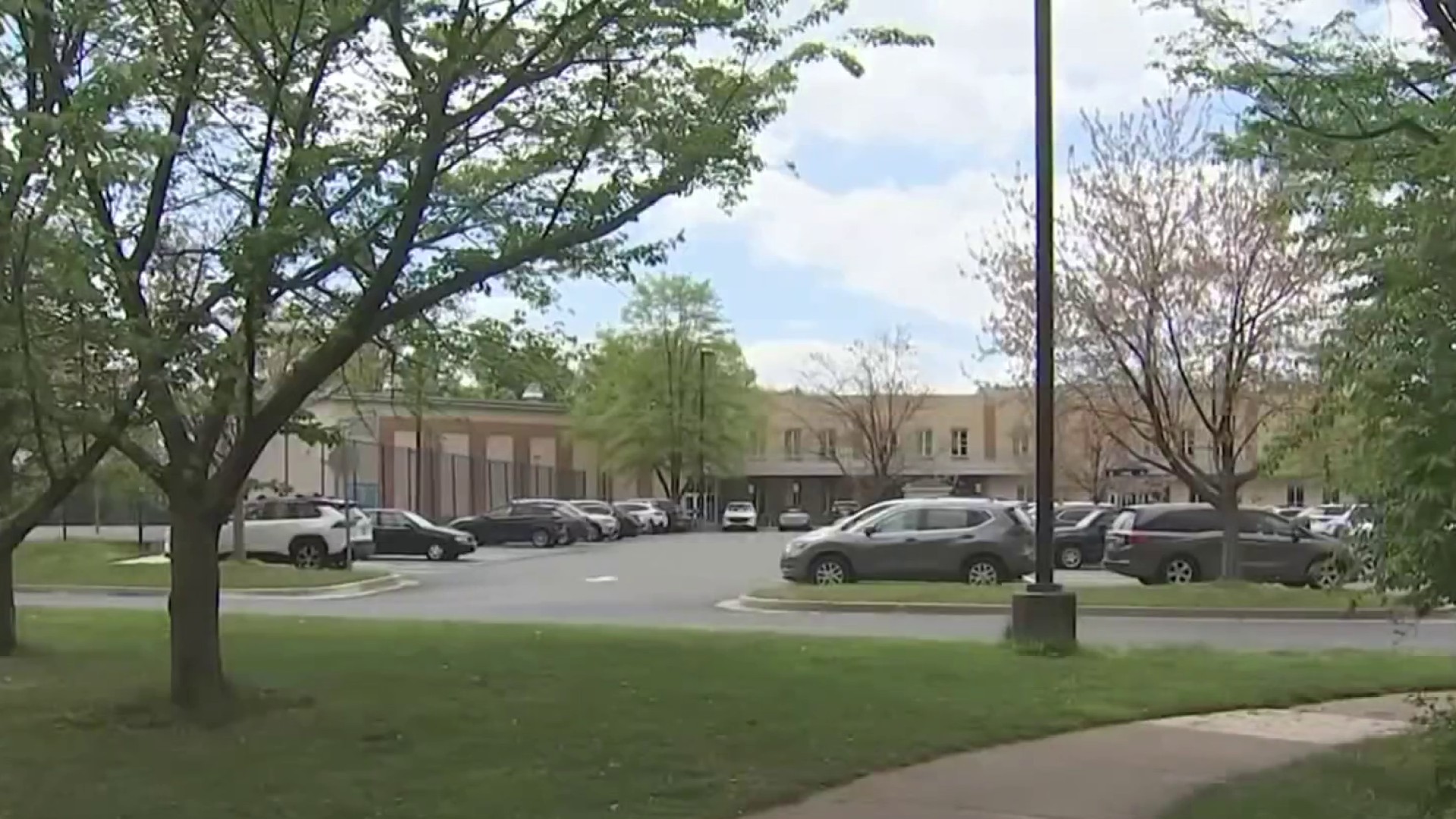Some people are ashamed to be labeled as mentally ill.
Others think the problem will disappear if they ignore it.
And sometimes, the systems set up to treat mental health patients fail them at the most critical moments, when intervention could change the course of their lives.
Those are the painful lessons Va. Sen. Creigh Deeds shared Monday at the signing of a mental health reform bill, just five months after he was attacked by his son, Gus Deeds.
Deeds hasn’t spoken often about the attack that left him with a reddish scar across his face. But in the months since the brutal assault, he has become a vocal advocate for mental health reform.
"People are ashamed of mental health issues," Deeds told WVIR-TV . "They're ashamed, they're embarrassed and lots of times you think it'll just go away.”
In recent years, incidents involving people with mental health issues have led the news, including several serious and tragic events making headlines here in the D.C. area. The tragedies can seem senseless, even infuriating. Many people have difficulty understanding the actions of someone who may be dealing with something much larger than themselves.
Local
Washington, D.C., Maryland and Virginia local news, events and information
But Dr. Phillip Wang, the deputy director of the National Institute of Mental Health, says it’s important to remember that the people in these stories are dealing with serious medical conditions.
“These are real illnesses,” Wang said. “Some people think these are not brain disorders, that it’s someone being a bad person, that something’s wrong with their morality. These are brain disorders.”
Far more people struggle daily, generating no headlines, but remaining equally in need of assistance. According to the National Institute of Health, more than a quarter of U.S. adults have a diagnosable mental health problem in any given year. Fewer than half receive treatment.
For the next year, NBC4 will shine a light on the subject with our special project, "Changing Minds." We want more people to talk about mental illness and mental health -- and to start to change the stigma that Deeds described.
Here are some of the stories that inspired the project.
“Some time that night, Gus determined I was evil and needed to die...,”
For months, Deeds has led the charge to reform the state’s mental health system, the same system that just months earlier failed his own son.
Virginia took a small step towards that change this week as Gov. Terry McAuliffe ceremonially signed a bill that will help ensure those under an emergency custody order, an order issued after a person is deemed to be a threat to himself or others, get a bed at a state facility.

Deeds' son, Gus Deeds, attacked his father then committed suicide last November. The incident occurred after the local community services board said it was unable to locate an available psychiatric bed for Gus within six hours.
In his first interview following the attack, Deeds told his hometown newspaper, "The Recorder," that his son began acting strangely about three and a half years ago. The state senator said he took steps to have his son involuntarily committed twice in 2011, but because of privacy laws, he never knew if his 24-year-old son's condition was ever diagnosed.
He continued to work to get Gus the help he needed, but just before the Nov. 19 attack, Deeds learned that Gus had been missing appointments with local mental health professionals and was writing about disturbing things.
For a third time, Deeds had an emergency custody order issued for Gus.
But when the order for Deeds' son expired before a treatment bed could be found, the two went home.
“Some time that night, Gus determined I was evil and needed to die...,” Deeds said.
Gus stabbed his father multiple times in the head and upper torso before turning a gun on himself.
Deeds said he lost part of his tongue in the attack, which makes speaking difficult. He also lost some feeling on his right side.
"If you've got a heart attack, if you've got cancer, you're going to get treatment. There are protocols developed,'' Deeds said in an interview with “CBS This Morning”. "But the mentally ill struggle in silence often.''
“Everyone who is involved in this case is in deep pain.”
Zakieya Latrice Avery, 28, and Monifa Denise Sanford, 21, were taken into police custody after the bodies of Avery’s 1-year-old son and 2-year-old daughter were found inside a Germantown, Md., townhome. Their two siblings were also injured, suffering knife wounds.

The women told investigators that they believed evil spirits skipped between the bodies of the children and that an exorcism was needed to drive the demons out, Montgomery County State's Attorney John McCarthy said.
The women also reported to investigators that they saw the eyes of each of the children blackening after they stabbed the children, took a shower, cleaned up the bloody scene and “prepared the children to see God,” McCarthy said
Sources told News4 that Avery had been diagnosed as schizophrenic. Sanford, who lived with Avery and her four children, told police she had tried to commit suicide at least two times.
Edward Leyden, a lawyer for Sanford, told reporters after a hearing in January that "everyone who is involved in this case is in deep pain."
“Still a Stigma Attached to Mental Illness”
Former Montgomery County Executive Doug Duncan is attempting a political comeback after almost eight years out of office.
In 2006, he withdrew from the governor’s race, citing a two-year fight with clinical depression.

Duncan is now running for his old job in the June primary.
“I’m living proof,” Duncan told The Washington Post, “that treatment works.”
After six to eight months of regular therapy and the right antidepressant, Duncan says he feels like himself again. He believes his illness has changed him for the better.
“I find myself reaching out to more people now in a much more personal way,” Duncan said. “I hug people a lot more than I used to.”
He also believes mental health issues need far more public discussion.
“There still is a stigma attached to mental illness,” Duncan said. “I think more men in particular need to talk about depression. I think there's a real training issue that needs to take place. We don't want our jails to become de facto mental hospitals.”
Duncan says he's ready to lead the county again.
“It's great to be back, and I'm having a lot of fun,” he said. “I'm back in my element, and I'm loving it.”
"...[H]er mental health was a significant driver..."

Miriam Carey had been diagnosed with postpartum depression and psychosis before she was shot outside the U.S. Capitol with her young daughter in the back seat.
A report from the Stamford, Conn., police department said Carey, 34, told officers in her hometown that President Barack Obama had her under surveillance. The police records also indicted that Carey's boyfriend reported she was having delusions and becoming violent.
The report said Carey's "boyfriend was attempting to care for her and the child the best" he could.
"We are seeing serious degradation in her mental health, certainly within the last 10 months, since December, ups and downs," an official familiar with the investigation said last October. "Our working theory is her mental health was a significant driver in her unexpected presence in D.C. yesterday."
Carey’s life ended tragically in October 2013 when she was shot five times after trying to ram her car through a White House barrier, authorities said. Her 1-year-old daughter was found unharmed in the backseat.
Carey's mother, Idella Carey, said her daughter began suffering from postpartum depression after having her daughter and had "no history of violence.”
Experts say symptoms of postpartum depression include lack of interest in the baby; mood swings; scary thoughts about something bad happening to the baby; and, in severe cases, suicidal thoughts — but not delusions.
In contrast, a condition known as postpartum psychosis can come with hallucinations, paranoia and desires to hurt the child. But that condition is extremely rare, experts say.
"...[T]hey many not think that they have a mental illness."
Despite the headlines, mental health professionals say all of these conditions are treatable, if patients get timely help. Wang says the typical delay between someone who has experienced a psychotic episode and the receipt of treatment is 110 weeks.
"Someone with a serious mental illness may have paranoid thoughts. They may have hallucinations," Wang said. "They many not think that they have a mental illness."
But friends and family members can help get their loved one the help they need.
"Help that person get to a provider," Wang said. "It could be as simple as...having that person see their doctor. It's a good first step."
Click here for a list of mental health services and resources in your area.
The Associated Press contributed to this report.



